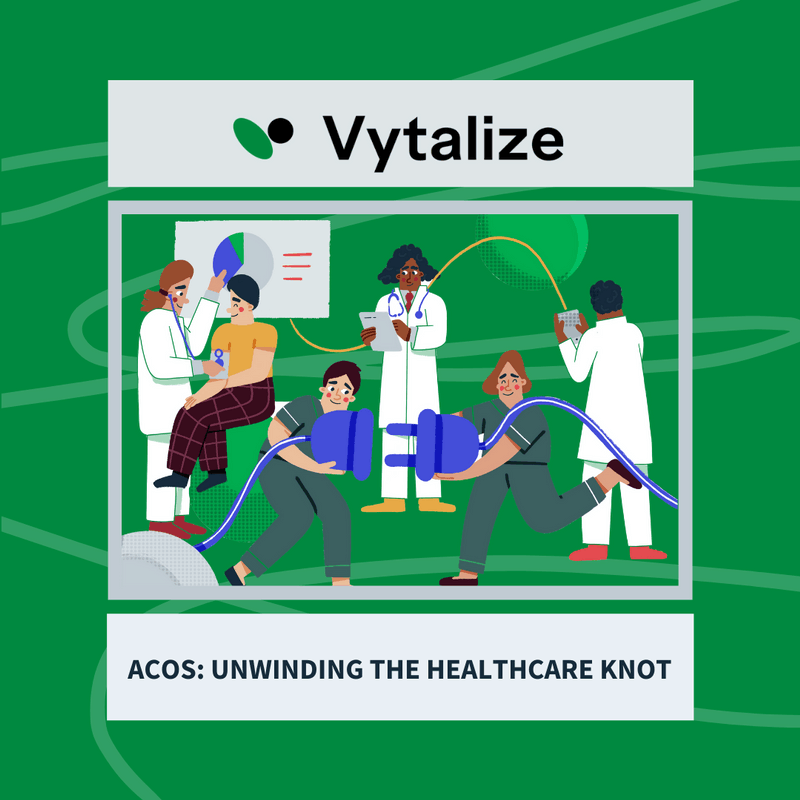Despite the fact that prevention is a keyword in the definition of healthcare, more commonly the modern healthcare system focuses on diagnosis and treatment. Our system has some great strengths: devoted providers, innovative researchers, powerful industry development capabilities, to name just a few. However, fragmentation, diffusion of responsibility, misaligned payment incentives, and haphazard organization all contribute to ballooning costs, patient alienation, and, sometimes, serious breakdowns in care.
Accountable Care Organizations (ACOs) were established to move the industry away from piecemeal fee-for-service payment and towards value-based care, a healthcare delivery model in which providers, such as hospitals and physicians, receive compensation based on patient outcomes, rather than volume of services.
Healthcare is the maintenance or improvement of health through the prevention, diagnosis, treatment, recovery, or cure of disease, illness, and other physical and mental impairments in people. ¹
Accountable Care Organizations Explained
 ACOs are networks of vertically integrated systems of primary care physicians, specialists, and sometimes hospitals responsible for improving the quality and affordability of treatment for a defined patient population and are eligible for financial compensation if performance criteria are fulfilled. Simply put: ACOs are designed to achieve Medicare’s Triple Aim Goal of A) improving health outcomes, B) reducing per capita health care costs, and C) improving the patient experience. This is accomplished first and foremost by putting primary care physicians at the forefront of Medicare patents’ health care, and aligning stakeholder incentives.
ACOs are networks of vertically integrated systems of primary care physicians, specialists, and sometimes hospitals responsible for improving the quality and affordability of treatment for a defined patient population and are eligible for financial compensation if performance criteria are fulfilled. Simply put: ACOs are designed to achieve Medicare’s Triple Aim Goal of A) improving health outcomes, B) reducing per capita health care costs, and C) improving the patient experience. This is accomplished first and foremost by putting primary care physicians at the forefront of Medicare patents’ health care, and aligning stakeholder incentives.
ACOs aim to enhance patient outcomes and community health management while keeping costs low through care coordination and a shared savings payment mechanism by financially rewarding efficient care.
Practices that join an ACO and achieve the quality-care standards are eligible for incentives such as financial savings, cost reductions, and shared savings with Medicare. Their shares will be reduced if the quality standards are not satisfied.
How do ACOs work?
Members of an ACO are rewarded for working together to improve the population’s general health, regardless of where the services originate, whether primary care doctors, specialists, hospitals, or other medical facilities. An ACO’s goal is to provide the best possible treatment, with an emphasis on the opportunities for improvement for people with chronic conditions like heart disease or diabetes.
What’s the purpose of an ACO?

ACOs exist to reward value over quantity, allowing better quality healthcare to be rewarded with higher revenue. One of the ways ACOs attempt to provide value is by lowering longer-term costs, for example by implementing programs that encourage fluid, continuous treatment of patients, as opposed to having an array of impromptu appointments throughout the year, where only the acute issues are addressed.
Successfully completing this cycle leads to improved patient and population health, and can do this with lower healthcare costs. As a result, Medicare saves money and can distribute part of the savings to the ACO participants. To put it another way, ACOs reward doctors for keeping patients healthy while the traditional healthcare paradigm rewards doctors for treating sick patients.
Challenges that face ACOs
Medicare evaluates ACOs throughout the course of the year, as the ACO program is vulnerable to abuse by corrupt facilities and hospitals. For example, some ACOs have been accused of forming purely to negotiate better insurance rates as opposed to improving their quality of care, and these accusations continue today. In those cases, it sometimes makes more sense for corrupt facilities to react to medical conditions rather than prevent them, as empty hospital beds might show something good happening for patients, but not look good on the hospital’s balance sheet. ACOs are likely to play an essential part in the future of a value-based healthcare system.
You may wonder, “Why don’t all practices join an ACO because it’s a win-win situation?” Many independent physicians and practices lack the necessary skills and time to establish and manage an accountable care organization. Vytalize Health was founded to give primary care professionals a comprehensive set of tools to enable these providers to access the rewards of this opportunity without needing to internally develop all of these skills and knowledge bases. Additionally, Vytalize can offer access to technical resources with an economy of scale that would otherwise only be available in a vast healthcare system, if at all..
Key Takeaways:
Medicare, with other carriers to follow, has made ACOs and value-based care the way of the future. ACOs will play a crucial role in advancing the healthcare industry’s value proposition. Increasingly, private industry and other large purchasers of insurance demand evidence that value not volume is the goal of their providers, and so this trend promises to only increase its share. Vytalize offers providers of all sizes and types the capabilities necessary to benefit from this future.






